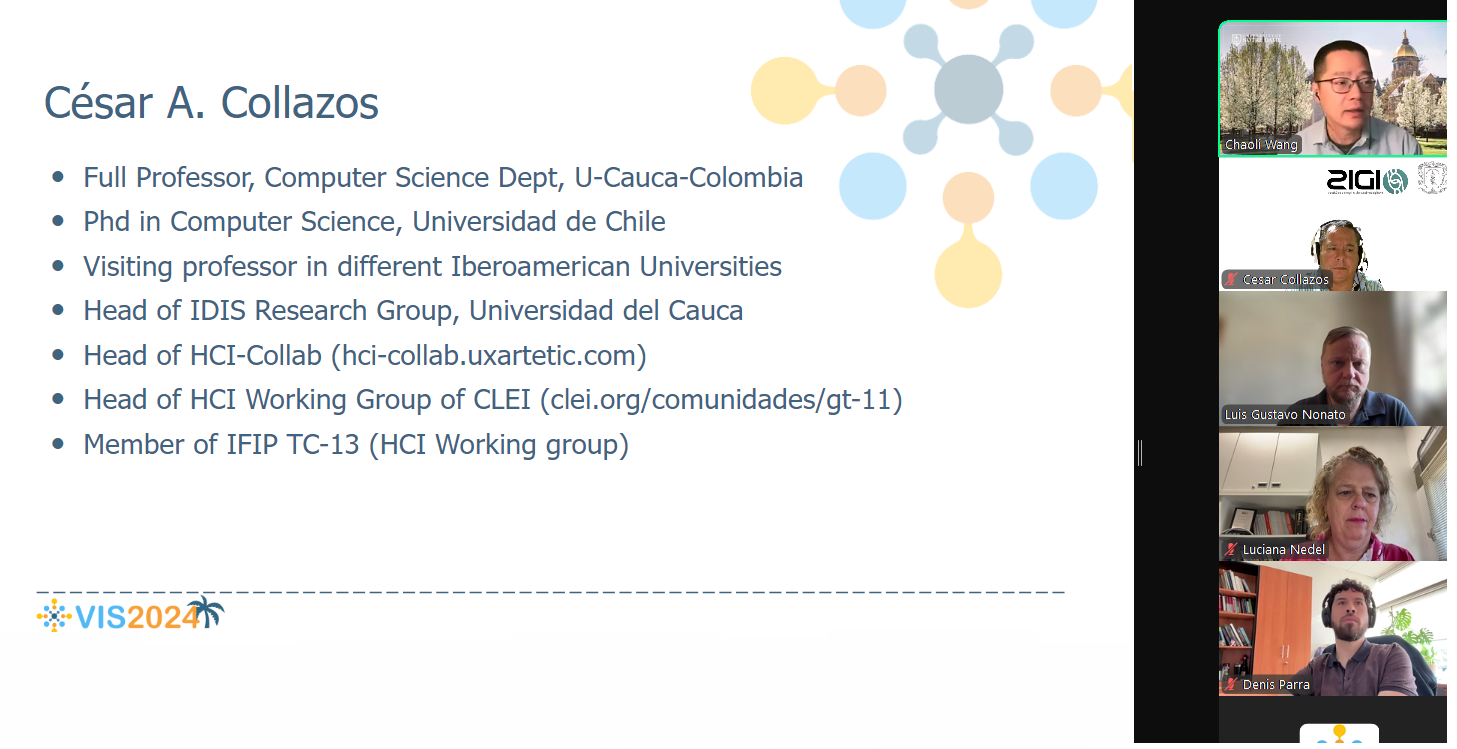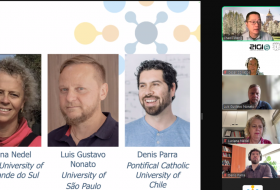News
University of Cauca Present at International Panel on Human-Centered Computing
As part of the VIS 2024 event, held in St. Pete Beach, Florida (United States) from October 13 to 18, 2024, Professor César Alberto Collazos from the University of Cauca participated virtually as a panelist, presenting his perspective on the opportunities, challenges, and obstacles of technological development in Latin America.
Professor César Alberto Collazos, from the Department of Systems in the Faculty of Electronic Engineering and Telecommunications, and coordinator of the IDIS group (Research and Development in Software Engineering) at the University of Cauca, participated in VIS 2024, one of the most important events in the field of visualization and visual analysis. The panel featured prominent researchers such as Luciana Nedel (Federal University of Rio Grande do Sul), Luis Gustavo Nonato (University of São Paulo), and Denis Parra (Pontifical Catholic University of Chile), who gathered to discuss the advancements and challenges of human-centered computing (HCC) research in South America.
Human-centered computing (HCC), which includes disciplines such as visualization, virtual reality (VR), and human-computer interaction (HCI), is experiencing significant global growth, driven by socioeconomic development, government investment, and the need to attract and retain specialized talent. However, research in this area in developing regions faces additional challenges. This panel at VIS 2024 provided a key space to discuss the current state of HCC in South America, highlight recent innovations, identify opportunities, and address crucial issues within the context of artificial intelligence, climate change, and democratic crises. The goal of the meeting was to inform the IEEE VIS conference attendees about HCC advancements in South America and explore collaborations to strengthen the status of this research field.

During the panel, Professor Collazos presented the lines of work of the IDIS group at the University of Cauca, which are focused on human-computer interaction and the design of human-centered technology. He also shared his analysis of the current challenges for technological development in Latin America and the opportunities he envisions for the region.
In addition to leading the IDIS group, Professor Collazos coordinates the HCI-Collab network, a collaborative teaching-learning network in human-computer interaction at the Ibero-American level, and represents the Latin American Center for Computer Studies (CLEI) before the International Federation for Information Processing (IFIP).
The University of Cauca celebrates and supports these international participations, where our professors highlight the academic quality of the institution and represent the talent and commitment of southwestern Colombia. Interventions like the ones shared in this article not only position the University at the forefront of research and technological development, but also strengthen its commitment to academic excellence and international collaboration to face the challenges of the digital age.
Written by: Communications Management Center.


